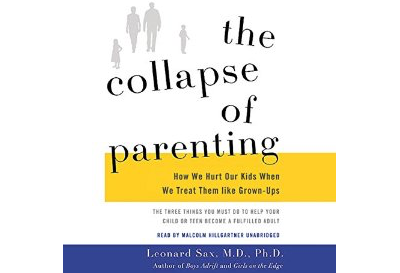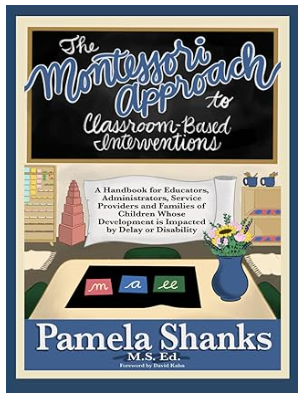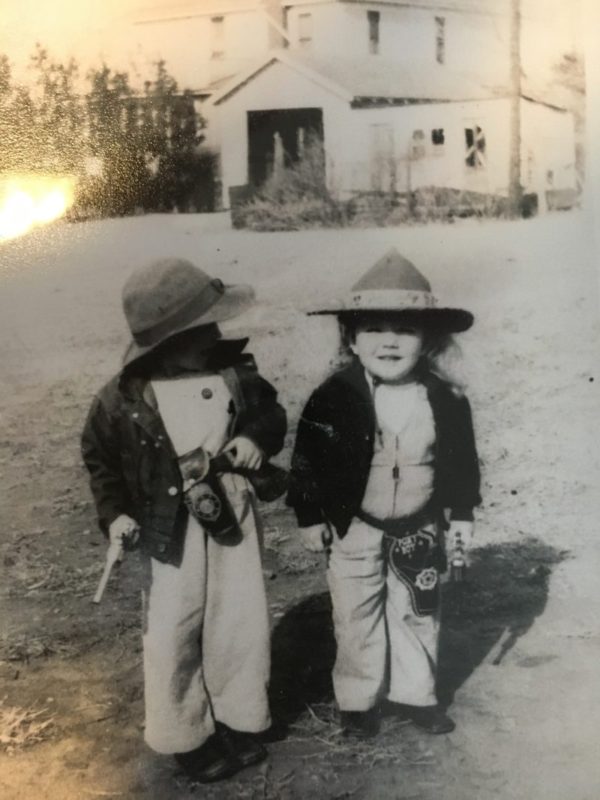From The Collapse of Parenting by Leonard Sax
What’s the point of school? I ask.
Why bother?
To get into a good college—that’s the answer I most often hear from American high school students. So what’s the purpose of college? I ask. To get a good job, to earn a living, the students answer.
This dialogue is the basis for what I have come to call “the middle-class script.” The script reads as follows:
- Work hard in school so you can get into a good college.
- Get into a good college so you can get a good job.
- Get a good job and you will make a good living and have a good life.
There are several problems with this script. The first problem is that every line in it is false.
Working hard in school is no guarantee of admission to a top college. We all know stories of kids who worked hard, earned good grades, and didn’t get into any of their top choices.
Getting into a good college is no guarantee of a good job. The media and the blogosphere are full of stories of young people who earned bachelor’s degrees from Princeton and Harvard and who are now waiting tables or simply unemployed.
Getting a good job is no guarantee of having a good life.
More about #3 in a moment. But first you and I need to ask the question, more seriously: What is school for?
I find that parents in the United States, more than in any other country, have bought into the middle-class script. In Germany, and Switzerland, for example, there is no shame if a 15-year-old chooses to train to become an auto mechanic rather than embarking on the university track. And that’s true even if both parents are university professors. Mechanics are respected, and they earn good money.
Mechanics can earn good money in the United States as well, but there is a stigma, a lack of respect, attached to “blue collar” work in the United States today, which is utterly lacking in Mitteleuropa. In the United States, it is hard to imagine the child of two professors choosing to go straight into “vocational training” to be a mechanic unless that child has been diagnosed with some sort of learning disability. Most Americans today regard “vocational training” as a low-prestige option for below-average-IQ kids, or for kids with learning disabilities.
At some level, sometimes subconsciously, many Americans —both parents and students—have accepted the idea that a primary purpose of K-12 schooling, maybe even the primary purpose, is to get accepted into a selective college and to prepare for college. That’s a mistake. The primary purpose of education should be to prepare for life, not for more school. And many of the skills needed to succeed in life are different from the skills needed for admission to a top college. In order to be admitted to a highly selective university, it is usually necessary to have a good grade-point average as well as good test scores. The student will also need to have participated in extracurricular activities that will impress the admissions staff. So, a rational student will avoid classes that might interest her but in which she is less certain of getting an A; instead, she enrolls in familiar classes that she knows she can ace. She may sign up for an after-school activity, not primarily because it interests her, but because she thinks it will look good on her college application. In short, she is not living so much as she is performing, putting on a show to impress the admissions office. And it breaks my heart to see so many parents aiding and abetting this puppet show in the belief that they are acting in their kids’ best interest.
As a practicing physician, I can tell you that many of my colleagues never did the hard work of figuring out in childhood or adolescence the answers to the really important questions: Who am I? What do I really want? What would make me happy? Those are not trivial questions. The great American psychologist Dr. Abraham Maslow observed that many adults never answers those questions. I have seen some such adults among my own physician colleagues. This man may be regarded as a successful surgeon; he may earn $600,00 a year; but he’s miserable. He’s unhappy because he is working 80 hours a week at a job he has come to loathe.
If you are working 80 hours a week at a job which shrivels your soul, then you are a slave. I don’t care whether you are earning $600,000 a year or more. Life is precious. Each minute is a priceless gift. No amount of money can reclaim lost time.
According to some labor force experts, in the 21st century, most Americans will bounce from one job to another, even from one career to another, several times throughout their lives. That sort of life…demands a very different skill from the skill set which works well in school. Your child will have to be willing to try different things, to go in different directions, in order to find their niche, their calling, their vocation….which may change over time. If you and your kids are playing by the middle-class script, then school isn’t preparing your kid for real life. Instead, school is making your kid less prepared for real life, by preparing your kid to be unduly cautious and risk averse.
The rules for success in life are different from the rules for getting admitted to Princeton or Stanford. The willingness to fail is one key to success in real life. To be a top student, you need to get A’s all the time, or at least most of the time. The values inculcated at most schools today, both public and private reinforce reluctance to take risks, a reluctance to fail.
Your job as a parent is not to reinforce the middle-class script, but to undermine it. Empower your daughter or your son to take risks and congratulate them not only when they succeed, but also when they fail, because failure builds humility. And the humility born of failure can build growth and wisdom and an openness to new things in a way that success almost never does. Steve Jobs said something similar in his 2005 commencement speech at Stanford: “I didn’t see it then, but it turned out that getting fired from Apple was the best thing that could have ever happened to me. The heaviness of being successful was replaced by the lightness of being a beginner again, less sure about everything. It freed me to enter one of the most creative periods of my life.”
Over the past 15 years, I have visited more than 380 schools. I have been trying to understand what kids need and how schools help, or don’t.
I have often been disappointed. Many schools I have visited, especially in the United States, completely embrace the middle-class script. As a result, they often make kids more fragile rather than less. But some schools have slipped free of that script. One of those schools is Shore. Robert Grant, sixth headmaster of the school who was fond of making one particular remark to parents of students newly enrolled. “I hope your child will be severely disappointed during his time at this school.” The parents were often confused. Why would the headmaster wish for my child to be severely disappointed? Grant would explain that if a student does not experience real disappointment at school, then he will be unprepared for disappointment when it comes in real life. And disappointment will come. Dreams will be crushed. Loved ones will die. Relationships will end. The right education, alongside the right kind of upbringing, should prepare your son or daughter to handle disappointment and failure, to slip loose of a dream when the dream is over, to move to another field of endeavor with no loss of enthusiasm. A few schools teach this explicitly and well, but in the United states, there are only a few. Some of the American schools regarded as “the best” because many of their graduates attend highly ranked colleges don’t even attempt to teach these skills, the skills needed for success in life. Those school are too busy preparing their students to get the best grades and the best test scores.
As New York Times columnist David Brooks recently observed, American culture today is based on the premise “that career and economic success can lead to fulfillment,” an assumption that Brooks calls “the central illusion of our time.”
The flip side of the dream is what Mark Shiffman, professor of humanities at Villanova, calls “the game of fear”: the concern so many young Americans now have that they will not find their place, that they will be less successful than their parents. “It has always been hard to answer life’s deep and abiding questions,” observes Shiffman. But he believes that contemporary American culture “makes it hard to ask them at all.” He points out that young adults today have become accustomed to relying on institutionalized criteria to validate and affirm themselves. The result is a focus on what kids do, what they achieve, instead of on who they are, their character.
It’s part of our job as a parent to help our child develop character, self-control, and conscientiousness. To help our child learn what does and does not matter. Doing so, Professor Shiffman concludes, will give your child “clearer bearings amid life’s uncertainties, a place to stand outside the game of fear. It also addresses what might be the deepest fear of all, which is that endless achievement might not add up to a meaningful life, that winning the races of academic and professional competition might not bring genuine happiness.
On another visit to Shore, the school in Australia, I spoke with the current headmaster, Dr. Timothy Wright. So What is the purpose of school? I asked. He immediately answered, “Preparation for life.”
That’s not a trivial answer. Dr. Wright constantly reminds his teachers, his students, and their parents that the main purpose of school is not to get into a top university, but to prepare for life. The skills needed to get into a top university are not the same as those needed for success in life. I said, “Ok, preparation for life. So what is the purpose of life?” Dr. Wright responded without hesitation:
- Meaningful work
- A person to love
- A cause to embrace
I’m not saying that Dr. Wright is a guru. I’m not suggesting his formula is the answer. But I believe that you must have an answer when your child asks you, “Why should I work hard in school?” You must have some answer bigger than “getting admitted to Stanford” or “making a good living.” You must offer a bigger picture. Some concept of what it’s all about. Some understanding that experiences with people matter more than the acquisition of things. And you must have the authority to communicate that big picture to your child. In order to do that, than his or her peers. The most serious consequences of the shift from parent-oriented culture to a peer-oriented culture is that parents no longer are able to provide that big picture to their children. By age 10 an American child is more likely to look to peers than to parents for guidance about what really matters in life. But children are not competent to guide other children. That’s what grownups are for. The shift from a parent-oriented society to a peer-oriented society has turned K-12 education into a “race to nowhere,” to borrow the title of a recent documentary. Children and teenagers from middle-income and affluent homes feel that they are in a rat race trying to get good grades, to get into a good college, but they have no idea why, beyond the vague promise of a comfortable job at the end of the rainbow and the lack of any coherent alternative.
Without strong guidance from parents, children and teenagers turn to the marketplace for guidance about what counts. And today, the American marketplace—the mainstream culture in which most American children and teenagers take part—is focused narrowly and relentlessly on fame and wealth. In the culture of Justin Bieber and Miley Cyrus and Lady Gaga and Kim Kardashian, fame and money and looking cool matter most. But the pursuit of fame and wealth and good looks for their own sake impoverishes the soul.
Being a good parent means—among other things—helping your daughter or son fulfill their true potential. Dr. Wright’s answer provides a road map for thinking about what that might mean. Meaningful work. Someone to love. And a cause to embrace. What work might your child find most meaningful? How can you prepare your child to give and receive love in a lasting relationship? How can you help your kids find a cause, something larger than themselves, that they can champion enthusiastically? The Conscientious child or teen is more likely to develop into a Conscientious adult: a man or woman mature enough to set meaningful goals and work toward them with integrity. To serve others. And to love, honestly and faithfully. To find the meaning of life.
Note: Add The Collapse of Parenting to your summer reading list. It will be time well-spent. You know the time between doing the laundry and answering text messages. You won’t be disappointed.






